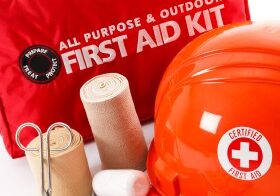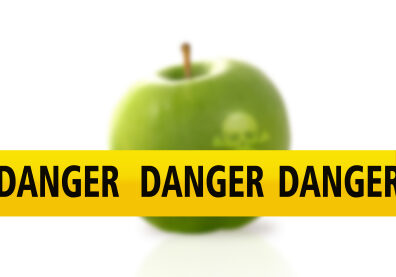In the midst of a disaster, be it natural or man made, there may come a time when a family member or neighbor will need medical attention. Are you prepared for this?
Tess Pennington
Tess Pennington is the author of The Prepper's Blueprint, a comprehensive guide that uses real-life scenarios to help you prepare for any disaster. Because a crisis rarely stops with a triggering event the aftermath can spiral, having the capacity to cripple our normal ways of life. The well-rounded, multi-layered approach outlined in the Blueprint helps you make sense of a wide array of preparedness concepts through easily digestible action items and supply lists.
Tess is also the author of the highly rated Prepper's Cookbook, which helps you to create a plan for stocking, organizing and maintaining a proper emergency food supply and includes over 300 recipes for nutritious, delicious, life-saving meals.
Visit her web site at ReadyNutrition.com for an extensive compilation of free information on preparedness, homesteading, and healthy living.

Prepping With Wheat Allergies
Wheat allergies are among the top 8 food allergens that people suffer from in the United States and in most cases, the culprit is gluten. Learn what alternatives are out there and how you can incorporate them into your food storage pantry.

DIY: Solar Powered Food Dehydrator
Solar power is a huge untapped energy source that can be used to dry foods, heat water, dry laundry and create electricity.

Survival Food Series: 25 Survival Seeds You Need For Your Garden
Living off the land sounds as inviting as Christmas dinner. But many have hardly had adequate experience being “farmers.” In fact, many have had no experience at all when it comes to planting anything. That being said, the day is slowly approaching where each of us may have to trade in our company identification badges for a shovel and a pair of overalls.

Composting Methods Made Easy
Many are intimidated by the process of compost and at times the smell. But great compost can be achieved without the odor, expensive composting contraptions or headaches that go along with it. Here are some tips for creating different versions of composters to fit the needs of small and large gardens.

Composting Feeds the Earth
With composting, it is understood that everything that comes from the earth should be returned to the earth. Composting is a gradual complex process, using both chemical and biological processes to break down organic matter naturally to change into compost. Oxygen, moisture, particle size, and temperature are the only elements needed to create composted material.

The Micro Farm Revolution:Think Small
There is definitely a buzz about micro farms, but you don’t have to live in out in the country in order to adopt some of practices of micro farms.

Natural Flu Medicines From Around the Web
Nature provides us all that we need to live and thrive. Two generations ago, people did not have Tylenol and Ny-Quil and Sudafed to get them through when they were ailing. Our ancestors had knowledge on medicinal herbs, and proven tonics that alleviated symptoms and cured their illnesses. As with many forms of generational knowledge, things are forgotten. But, the time may come when we will need to know what our ancestors knew long before us.

DIY: Recipes For Everyday Products
In order to save a few dimes in my pocket, I’m starting to use my emergency pantry items in other ways ranging from deodorant to furniture polish.

The Prepper’s Coupon Campaign
Not only can you use coupons to use for short term and long term food supplies, but you can find deals for camping equipment or warm clothes, etc. You can literally save hundreds of dollars using coupons. Think of the extra money you will save to buy other necessities such as batteries, a special tent, or camping supplies or even a case of Mountain House Food.



FDA Added Warning Label to Tamiflu In 2006: Can Cause Suicidal Thoughts, Loss of Consciousness and More
The world’s next pandemic is occurring as we speak. But, if the medication that many leading countries are prescribing have modest effectiveness, and occurrences of bizarre psychiatric behavior, and a possibility of the medicine invading the blood-brain barrier, is it worth it? Are there other measures that can be suggested by our doctors? Pro-active measures need to be made. But it seems that the negative points outweigh the positives in this case.